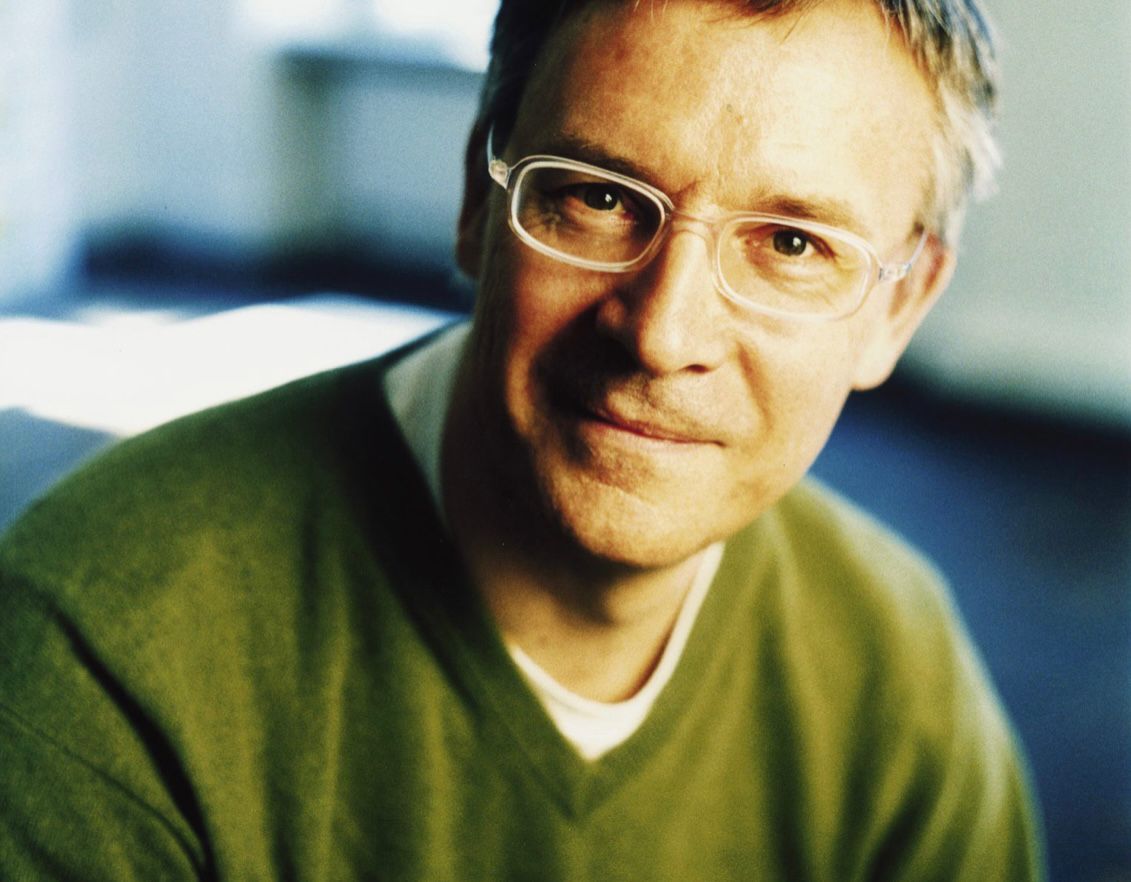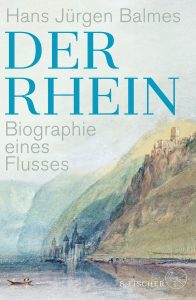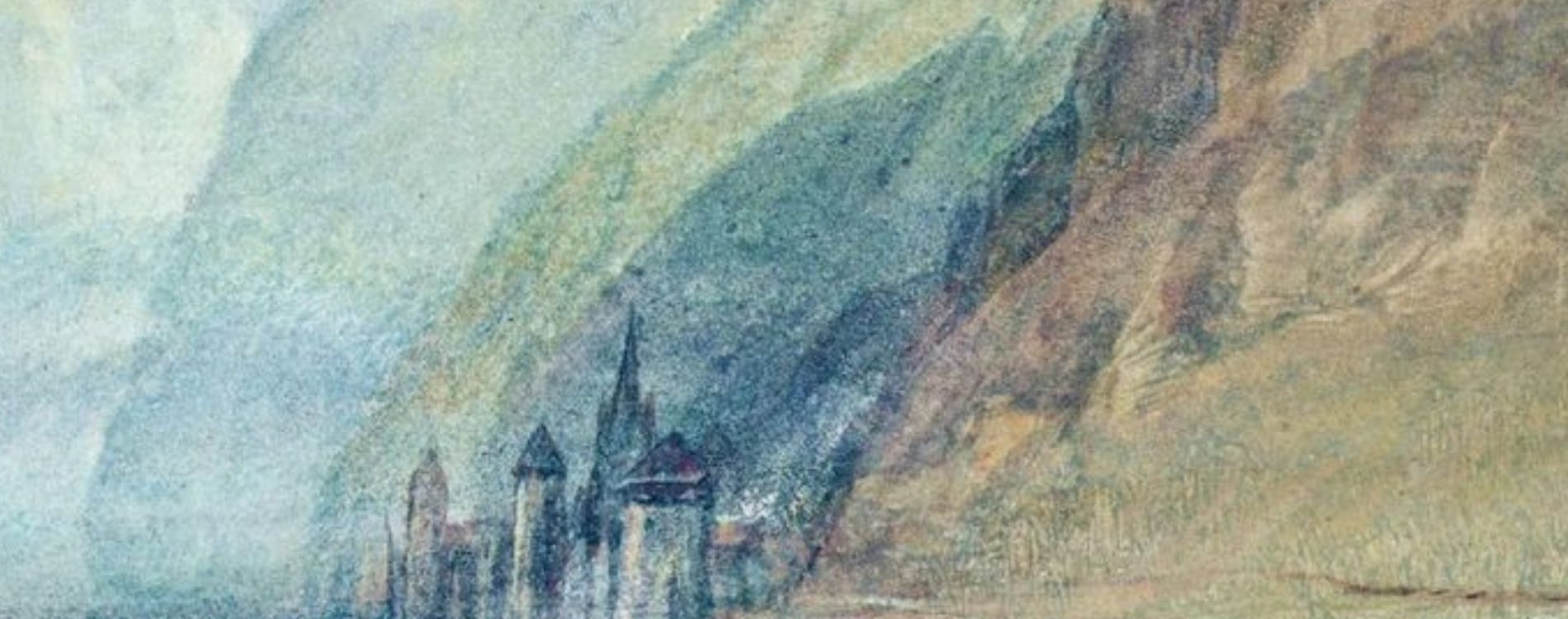
Photo Credit: Jörg Steinmetz
Mr Balmes, firstly, I should say that I am grateful to you for having accepted our interview proposal for our Turkish e-magazine “Mikroscope”. It was so nice to meet you at the Frankfurt Book Fair. How do you feel after such exhausting days at the fair?
S. Fischer is Frankfurt based. As I live nearby, my train to the office cuts right through the fairground. For 51 weeks of a year, this is full of anticipation, but there is only one week to celebrate the presence of so many friends in our hometown. After the fair, everybody is tired but the city is empty – a feeling of loss.
With your permission, let us start from your childhood: Was being involved in literature your dream job, or were you expecting to be something completely different when you were a child? How did your literature career begin?
As a kid, I wanted to be a ranger taking care of animals and protecting the forest. The first books I remember to have read as an adolescent have been books like “Silent Spring” by Rachel Carson. But as I learned that biology turned into chemistry, at least to 90%, my curiosity changed and was directed to the human mind. And what could give you a better idea of the mind as literature? So I started to be a serious reader, of Hermann Hesse, Tolkien, Heinrich Böll, Max Frisch, Ingeborg Bachmann (Volumes with her unfinished novel were just published.), John Berger. But poetry was first – and I always notice the difference in readers who entered literature through the entrance of poetry or the gate of prose. Michael Krüger took the poetry gate, for sure. I was happy that I could learn from him – right from the beginning. We met in 1984 and became friends.
 You have been working as an editor for international literature at S. Fischer in Frankfurt since 1999. What is it like to be working for one of Germany’s most prominent publishing houses dating back to 1886?
You have been working as an editor for international literature at S. Fischer in Frankfurt since 1999. What is it like to be working for one of Germany’s most prominent publishing houses dating back to 1886?
Working for S. Fischer is an honor and a privilege, of course. But these are things better shut in the closet. Working for S. Fischer offered me the chance to work right at one of the busiest crossroads of world literature today – because of the work of my colleagues, and the tradition they established, but also to live in a beehive of curiosity – by colleagues, scouts, translators, authors: lots of input. And sometimes authors have to write under dire circumstances: We all admired very much the courage, strength, and energy which Ahmet Altan showed: being imprisoned and writing two books that inspire the reader to fight for a good cause. In Germany, he received the Geschwister-Scholl-Prize, one of the most respected literary prizes named after the resistant fighters Hans and Sophie Scholl from Munich.
How is Germany different from other countries in terms of publishing?
Germany is one of the biggest book markets in Europe and one of the most solid – due to the fixed price of books. For us, as literary publishers, concentrating on authors and their works, the independent booksellers and the few chains are very important. Amazon has a great share, but not as suffocating as in the US or in the UK. And during the pandemic, brick-and-mortar shops did exceptionally well. Book contracts and small print are following international standards.
At the book fair, during the “Tribute to Carlos Ruiz Zafón” conference, you stated that Zafón was not only a successful novelist, but also a good musician. Actually, I did not know he could play the piano so well. Also, I was unaware that his excellent descriptions of buildings in his novels arose from his deep love of architecture. Therefore, on behalf of you, I would like to thank everyone who spoke at that tribute for sharing these with Zafón’s readers.
Carlos Ruiz Zafón is a familiar novelist to Turkish readers with his “The Shadow of the Wind”, “The Angel’s Game”, and “The Prisoner of Heaven”. At this point, I should confess that I am especially a big fan of “The Shadow of the Wind”! And if I am not mistaken, you were the editor of Zafón’s novels published in Germany. So what was it like to have worked with him?
Carlos had a gentle soul – you could feel this in his musical improvisations, but also in his care for children and the life of women in his novels. There is also his caring attitude towards writers in his novels who have to suffer quite a bit. When we took a stroll in the city or cruised in the car, he was pointing out spots where scenes of written or unwritten novels have taken or will take place – villas like the one where he met his wife for the first time. In the sunshine, everything looked shiny, but there was always a dark vibration, too: As much as he loved Barcelona, he felt that the Franco years took a huge toll and that its wounds were still bleeding. So behind so many windows, the evil is lurking. And he felt its presence. One of his obsessions was with dragons – one encounters them in Barcelona at every corner. He loved to draw them as comic figures, but he never forgot their violent nature, too, which only could be succumbed by St Jordi.
And you met Zafón almost every January in Barcelona when he came home from Los Angeles to see his family. So I wonder how the two of you -as good friends- spent time together every time he came to Barcelona. And if it is not too personal, could you also explain why he chose especially January to visit Barcelona?
He came for Christmas to see the families of his and of his wife. Magi, the feast of the three kings, is as important as Boxing Day in Barcelona: Now the presents shower onto the kids and there is a great parade of the Magi through the old city of Barcelona. He was usually there on this day. Another day he nearly never missed was St Jordi Day on April 23rd: St Jordi is the patron saint of the Catalans, and of lovers, so you are expected to have a rose or a book ready for your love. During St Jordi, the city is full of readings, and signings – a big affair that Carlos did not want to miss. So he often came back in spring when he had a new book. On my visits we went to the places important for his next book – he was also coming back to get the details right (Could she jump over that wall?), to dive into the atmosphere (the lounge of an old hotel which had the heavy furniture and painted windows like a medieval hall). Sometimes we went to places where he could expect to be discovered. He was basking in the attention of the cable car drivers on Tibidabo, and he was amused by tourists on a sightseeing tour: They took pictures of him, and he smiled. He told me plots and he spoke of future plans, we talked about his books and walked through the scenery. But I guess we knew each other better through discussing music: Here we were out of professional boundaries. We both loved Keith Jarrett, and in his L. A. neighborhood lived the Oscar-winning German-born composer Hans Zimmer who did scores for hundreds of films, blockbusters like “Batman” and “The Dark Knight”, too. They seem friends, and I would love to have heard them discussing arcane Moog synthesizers or the emotional back alleys of sinister film plots. Maybe they played music together. I hope so.
You have also translated works by John Berger and Barry Lopez and poetry by Robert Hass, W. S. Merwin and Martine Bellen from English into German. For you, what is the basic difference between translating prose and translating poetry?
In translating prose or poetry, you have to follow language and content, but the weights on the scale are different – they move towards language and rhythm with poetry, towards content with prose.
How do you evaluate the quality of a book before it is published?
It is hard, and I would be happy if I could explain it to myself. There is always a surprise, and often I have to wait to put this surprise into words because part of it is an emotional reaction to the book or to the novel (I nearly always published fiction.). If this moment of surprise does not wear down with rereading, there is definitely some merit in it – and most of the time my colleagues join in. But our reaction to books is as multi-layered as our reaction to songs – you try to understand their presence, understand the stories they tell you, but often you go back to a song because of its emotional value or a memory triggered it. As it is with books.
As an editor, how well can you get to know an author’s intentions through his writing? And can you provide an example of a time when you had to work with an author to improve the clarity of his writing (You do not have to give the author’s name, of course!)?
An author sees his work from the inside, it is the reader who sees it from the outside. An editor (if not the author’s paramour) is often the first person to have this view: And a lot of things can look different from the outside than from the inside. Now it is the discussion between the author and the editor to make sure that both perspectives get closer to each other. It depends on the relationship between the two personalities if this process is fruitful or difficult – mostly difficult in the beginning and fruitful in the end. But luckily, most discussions begin when the book is not fully written. Then the editor has a chance to look at the map of the developing work and sometimes can offer some directions. Sometimes an editor is there to witness the author’s work. When I visited John Berger, which I did not do often enough, he would pull out some pages and read them aloud – after the dishes were cleared from the table and gnôle was in the glasses. In the following weeks, he would ask for my reaction – like many writers he started work from many starting points at once and needed time to develop a structure. He first had to discover different paths into the book. And here an editor can listen, witness, and give advice – relying on his or her reaction and experience with other books.
What would you do if you noticed a significant error in a recently published book that you had already edited?
Drink a gnôle, pray that nobody sees it, or that the first print-run is sold out immediately, so we can reprint. I was lucky till now, nothing really embarrassing happened to me and the mistakes of my beginning are long forgotten – but it can happen, and in some cases, publishers have had to print a new version. (Misprinting the author’s name is in the worst cases’ top ten.) If a number of the statistics is wrong or a name of a protagonist is on a certain page, we print a little errata page which we stick into the books.
Suppose you noticed a discrepancy between the intended meaning of a passage and its actual meaning. What would you do? How would you fix it?
We will discuss. Maybe it is me with a blind eye. Maybe we find a third way. Mostly, this will be the solution.
Are there any types of books you are not interested in editing or translating?
I would be surprised to translate a summer read if there is nothing in it than summer. Or a cookbook heavy on meat. Or a book praising tyranny.
According to you, what are some of the most important qualities for a book editor to have? And do these qualities change when he is editing in his own language and when editing a translation?
Patience and a good ear. Judgement and a good eye. Understanding and good taste. But you can never be sure to perform always on that level. In editing a translation, you follow a beaten path, the text is there and sometimes you can find a little mistake like a misspelled name or an error in the architecture: The house is suddenly in the south of the city, now longer west. The focus of your work is on the transport of the text between languages, finding the right translator, and sit down at the mixing board not in a recording studio, but at one between languages – by editing a text written in German, I am observing how the path is made and I can sometimes be of assistance. As an editor I am more active – I have to see for both, content and language.
How do you stay motivated with repetitive tasks like proofreading, fact-checking or source-checking? Do you perform all these by yourself or delegate some of these tasks?
The good thing about working at a large publishing house is that you have a team of people around you. I am a lousy proof-reader. As fact-checking, I am better, or at least I had thought till I wrote my own book. So many facts – I suddenly found myself walking on eggs. But by the time a book gets to be typeset, the editor has read the manuscript so often that he or she got accustomed to all misspelled words – so it is safer to call a specialist.
How would you handle a public error or a PR crisis?
I will call our PR-spin doctor and hear what he says. And then I would answer all the questions and try to learn. Sometimes it is more about the ego of the combatant than about an obvious mistake.
How do you define “success” for a book you have edited?
If I have the notion that we have reached all readers who are there for a given book. Can be 30.000, can be 1.200 – depends on the book.
How would you give constructive feedback to a fellow writer?
You have to convince the author that you understand the book, and that you are on the same side. And from here you can criticize, without hurting. (Most of the time, writers are touchy after they have given birth.)
 And finally, I would like to mention your own book “The Rhine – Biography of a River”. How did writing such a book originate in your mind? As another German writer and publisher, Michael Krüger, has commented on this book, “Can rivers really tell us more than mountains, landscapes and cities?” Can they?
And finally, I would like to mention your own book “The Rhine – Biography of a River”. How did writing such a book originate in your mind? As another German writer and publisher, Michael Krüger, has commented on this book, “Can rivers really tell us more than mountains, landscapes and cities?” Can they?
Rivers are great connectors: They connect people, and landscapes, and are migrant routes for fishes, algae, crabs, and birds. Rivers have great memory: At their bottom, everything can be found. They store history and the past, and they connect ages and epochs. Connectors and memorizers make great storytellers which tell us where they come from and where we will be next. Writing on the Rhine gave me the chance to reconnect my biography (I was born and raised at Rhine and Moselle.) with our family’s story, but also explore the geological past of the river which is nearly as old as the continent Europe itself and see its future in the so-called Anthropocene. And then I came back to the silence and the murmur of water, the flutter of its birds, and the silver of its fishes. I guess the Rhine is my model for life itself.
Many thanks for answering all my questions frankly, Mr Balmes.



